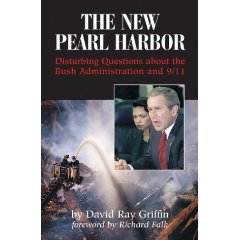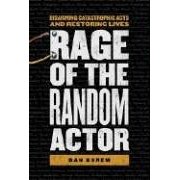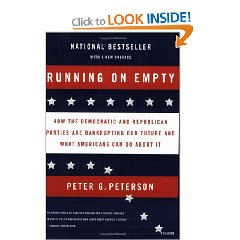There is absolutely no question but that the author of this book is patriotic, educated (after the American fashion), and well-intentioned. Sadly, this does not mean that he has any common sense, any historical context, any strategic vision, nor any relevance to the future. Indeed, and I rarely write negative reviews (5 out of 1015+), this book is most useful for understanding the ignorance and arrogance of Presidential sycophants who place loyalty to a single man and office and party (or rather, ideological branch of the party) above their loyalty to the Constitution, the Republic, or the public interests they are supposed to be defending.
The book is best summarized by a quote from a White House staffer who is reported to have said, in talking to an expert on foreign affairs, “You must be one of those reality-based people. We are an empire, we make our own reality.”
The problem with this arrogant and ignorant statement, which is manifested throughout this interesting book, is that a reality based on ideological fantasy and the security of hiding behind the Secret Service completely begs off on confronting the harsh realities of a world in which 5 billion pissed off poor people are inevitably going to sponsor 1 million armed terrorists who know how to create Improvised Explosive Devises (IED) and know how to deliver the “death of a thousand cuts” to US infrastructure (water and fuel pipelines, energy generators, shipping port cranes, key communications switching stations, key banks, etc.
The “sucking chest wound” in this book is that it does not recognize the role played by the (once) wise men of Congress, in two houses–one, the Senate, designed for long-term deliberation, the other, the House, designed for mid-term respect for the “wisdom of the crowds,” both of which were created by the Founders to temper Presidential hubris, Presidential ambition, and Presidential mendacity.
The fact that our Congress today is grotesquely corrupt and dysfunctional does not in any way render the above point moot. As we saw in the rush to war on Iraq, which has now put us in a six-front-war that will last 100 years, the Executive is all too fragile and malleable and prone to short-term error with long-term consequences.
The author makes a case for Presidential power in this book that is isolated from historical, ideo-cultural, socio-economic, techno-demographic, and natural-geographic context. This is not a debate about how to get from here to 2008 “efficiently,” but rather a debate about how to survive and prosper as a Nation over the next 200 to 500 years.
Were the author more intellectually-honest and reality-aware, he would understand that the future of American cannot be secured by a few guns against 5 billion at the “Bottom of the Pyramid,” and he would understand that the end of cheap oil, the end of free water, the rise of pandemic disease, the looming catastrophes of poverty and environmental degradation are all context within which long-term strategies are essential, in which we must help create indigenous wealth that is scalable and self-generating.
Bottom line: this book represents the kind of narrow, ignorant, sycophantic view of the Presidency that has come to characterize the Cheney-Addington-Gonzalez view of Bush as a puppet and the people as stupid. If this book were to become “reality,” not only would Congress and the people forfeit all their powers (of the purse, of the power to declare war, of the power to hold elections, of the power to live under the rule of law), but in becoming “reality,” this book's premises would destroy the Republic.
Read this to understand the internal threat to our Republic. Well-intentioned individuals who have no clue how to serve the people, and are intent on serving their narrow constituency of a single President whose wealthy pals want to loot the Commonwealth with as few restrictions as possible until the party is over and they can move to Switzerland and leave us to deal with their multiple deficits.
I have three sons. This book has persuaded me that they must each receive a liberal arts education before going on to specialize in a craft, for in this book, I see all that is evil about narrowly-educated individuals who mean well but know little of the real world.
See also:
Vice: Dick Cheney and the Hijacking of the American Presidency
American Fascists: The Christian Right and the War On America
Running on Empty: How the Democratic and Republican Parties Are Bankrupting Our Future and What Americans Can Do About It
The Broken Branch: How Congress Is Failing America and How to Get It Back on Track (Institutions of American Democracy)
Breach of Trust: How Washington Turns Outsiders Into Insiders
Crossing the Rubicon: The Decline of the American Empire at the End of the Age of Oil
The Road to 9/11: Wealth, Empire, and the Future of America
Wars of Blood and Faith: The Conflicts That Will Shape the 21st Century
Resource Wars: The New Landscape of Global Conflict With a New Introduction by the Author
The Search for Security: A U.S. Grand Strategy for the Twenty-First Century









